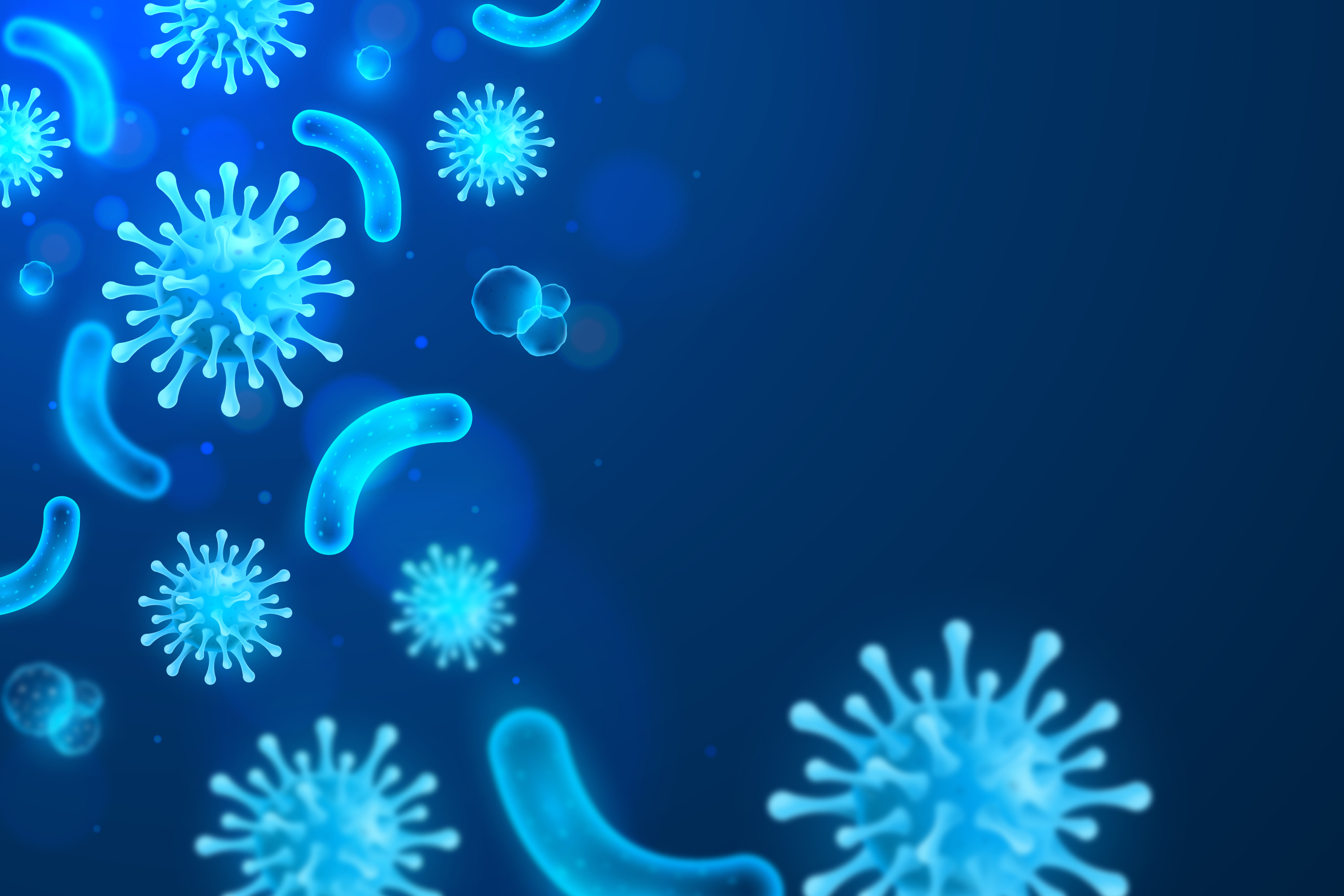Post-acute COVID-19 syndrome ("long COVID") refers to long-term symptoms that persist after acute SARS-CoV-2 infection, affecting multiple organs and systems. Long COVID affects over 65 million people worldwide, yet effective treatment is limited. Our research team at the Faculty of Medicine of the Chinese University of Hong Kong (CUHK Medicine) has completed a large-scale double-blind, randomised, placebo-controlled clinical trial, which confirmed that patients who were given an oral synbiotic preparation (SIM01) developed by CUHK experienced significant alleviation in various long COVID symptoms. The landmark findings have been published in the world-leading journal in infectious diseases, The Lancet Infectious Diseases [1], and presented at the inaugural Hong Kong Laureate Forum in November 2023.
Earlier studies by CUHK Medicine showed close associations between gut microbiota dysbiosis and long COVID [2,3,4]. However, no research has yet to confirm that gut microbiota modulation could alleviate long COVID symptoms. SIM01 is a patented oral synbiotic formula developed by CUHK Medicine, who has been keen to utilise big data and machine learning to develop synbiotic formulae of beneficial probiotics and prebiotics for different diseases. In this large-scale double-blind, randomised, placebo-controlled clinical study (RECOVERY), our team have evaluated whether SIM01 could alleviate long COVID symptoms. In 2021 to 2022, we have recruited a total of 463 recovered COVID-19 patients to participate in the RECOVERY trial. Participants' mean age was 49 years, and 65% were female. Nearly 70% of participants were Omicron cases, whilst others were earlier cases. They were enrolled into the study at a median of 4 months after COVID-19 diagnosis and were randomly assigned either into the SIM01 group or the control group at 1:1 ratio. The SIM01 group received SIM01 orally for 6 months, whilst the control group received placebo containing vitamin C orally for 6 months.
Clinical assessments confirmed that after 6 months of receiving SIM01, the alleviation rates of five long COVID symptoms were significantly higher when compared to the control group, including fatigue (63% vs 43%), difficulty in concentration (62% vs 39%), memory loss (42% vs 27%), gastrointestinal upset (70% vs 54%) and general unwellness (77% vs 59%). Treatment with SIM01 significantly enhanced the diversity and richness of gut microbiota, promoted the growth of multiple beneficial bacteria, and inhibited potentially pathogenic bacteria, thereby maintaining microbial balance. Additionally, SIM01 significantly improved the functions of gut microbiota, potentially promoting the release of short-chain fatty acids and inhibiting the production of urea. Our results also showed that the probiotic bacteria in SIM01 could target different symptoms of long COVID, providing a comprehensive therapeutic effect.
Our study revealed possible scientific mechanisms behind the alleviation of long COVID symptoms by SIM01. This clinical trial not only offers important directions for the treatment of post-acute COVID-19 syndrome, but also for other chronic diseases and post-infection conditions.
References:
- Lau RI, Su Q, Lau ISF, et al. A synbiotic preparation (SIM01) for post-acute COVID-19 syndrome in Hong Kong (RECOVERY): a randomised, double-blind, placebo-controlled trial. Lancet Infect Dis 2023, published online Dec 8. https://doi.org/10.1016/S1473-3099(23)00685-0
- Liu Q, Mak JWY, Su Q, et al. Gut microbiota dynamics in a prospective cohort of patients with post-acute COVID-19 syndrome. Gut 2022; 71: 544–52.
- Su Q, Lau RI, Liu Q, Chan FKL, Ng SC. Post-acute COVID-19 syndrome and gut dysbiosis linger beyond 1 year after SARS-CoV-2 clearance. Gut 2023; 72: 1230–32.
- Zhang F, Lau RI, Liu Q, Su Q, Chan FKL, Ng SC. Gut microbiota in COVID-19: key microbial changes, potential mechanisms and clinical applications. Nat Rev Gastroenterol Hepatol 2023; 20: 323–37.
Author:
Ms Raphaela Iris Lau, Hong Kong PhD Fellow, Department of Medicine and Therapeutics, Faculty of Medicine, The Chinese University of Hong Kong
March 2024

